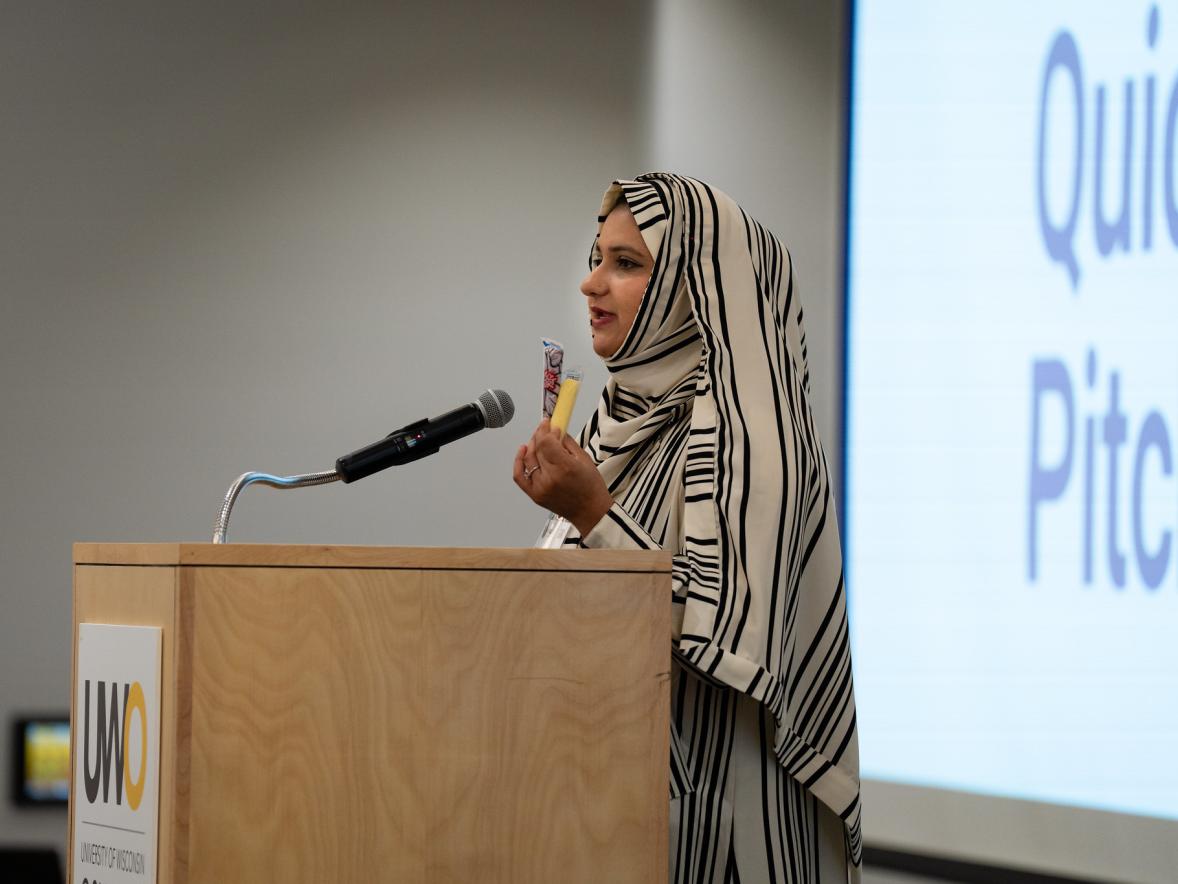In January 2019, a few weeks after Craig Kaiser participated in UW-Stout Furthering Food Safety Workshop, we caught up with him to get the backstory on his product, Cry Baby Craig’s Pickled Habanero & Garlic Hot Sauce. Now available in more than 500 Twin Cities area restaurants and retail outlets, the award-winning, all-natural condiment first took shape in 2012 when a twist of fate put unexpected ingredients in Kaiser’s creative hands.
UW-Stout: Take us back. How did Cry Baby Craig’s get started?
Kaiser: I was working as Chef d’Cuisine at Café Maude in Minneapolis when the jalapeño peppers I’d ordered showed up as habaneros instead. Rather than throwing them away, I pickled the habaneros to preserve them for future use and wound up incorporating them into a sauce. I see it as a happy accident. Cry Baby Craig’s is the only hot sauce on the market that uses pickled peppers instead of cooked ones, and you can taste the difference in the tang.
UW-Stout: Cry Baby Craig's slogan, “Changing the world one drop at a time,” suggests you have goals. True?
Kaiser: Ultimately, we’re working to make Cry Baby Craig’s available coast-to-coast in the U.S. This process has shown me the food industry isn’t necessarily prepared for smaller entrepreneurs like me, and regulations can deter people from doing it. We’re trailblazing the way forward. Fresh food with no chemicals and no fillers can still be safe food.
UW-Stout: How does the trail ahead look?
Kaiser: I have the best customer support in the world, but I stand alone during FDA and Department of Agriculture inspections which can be intimidating. Your business is in their hands. With Dr. Kim’s guidance, I’ve put myself on the same playing field as the inspectors. I have in-house studies to support my compliance. If they have questions, I can give them detailed answers.
Your #1 takeaway from UW-Stout Furthering Food Safety Workshop?
Kaiser: How easy it is for something so small, Salmonella or E. coli that you can’t even see, to ruin your operation. There’s a proper list, a proper way to move from station to station. Absolute organization, applied to sanitation, is your best friend.
UW-Stout: Your advice for other start-ups within the food industry?
Kaiser: Ignore politics that say it’s not possible - no one else is doing this, therefore neither can you. Yes, you can. Do a lot of self-reflection and be ready to fight. Take the time to advance your education and go to bat for your idea.






